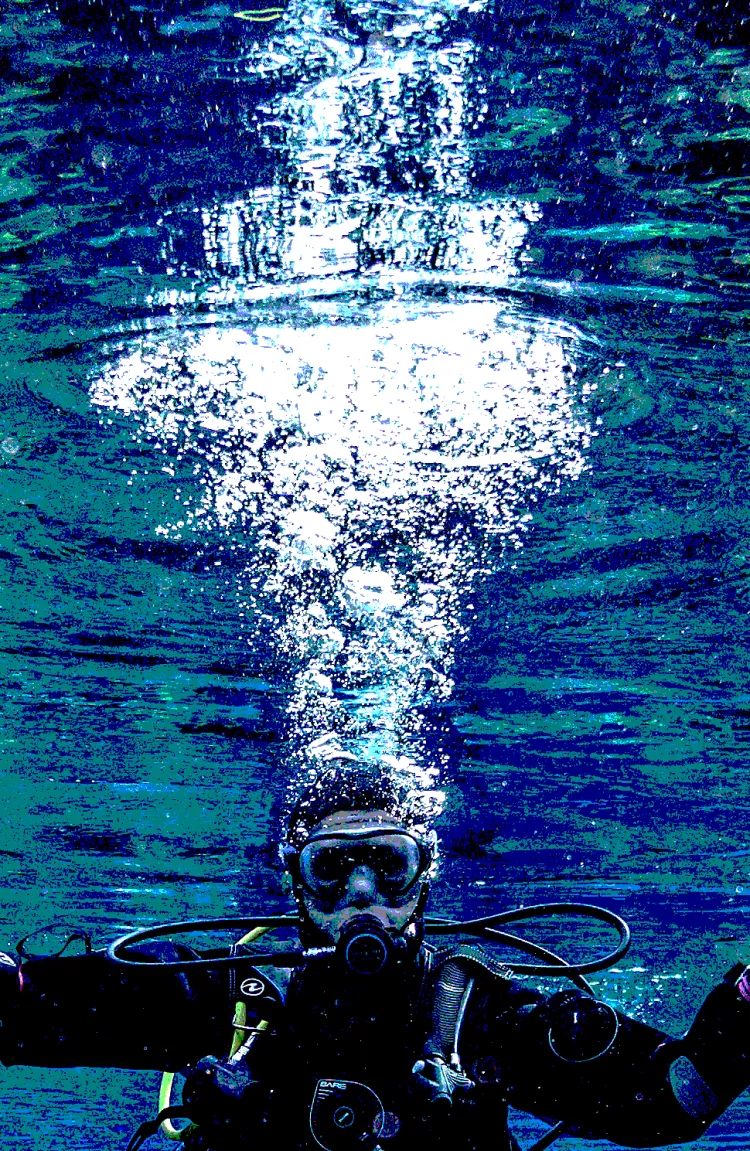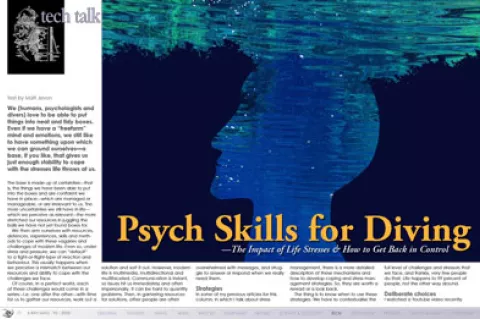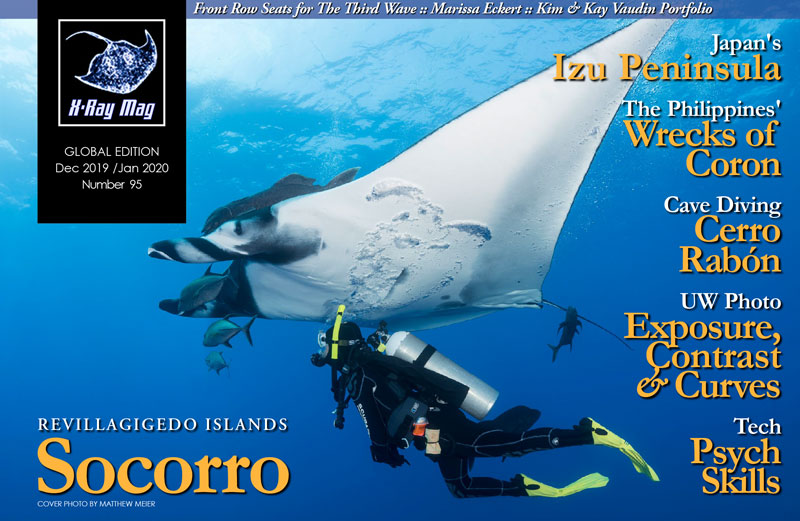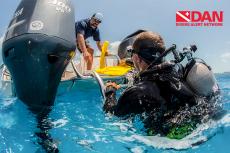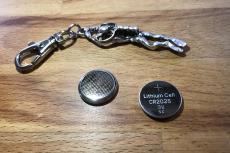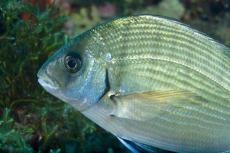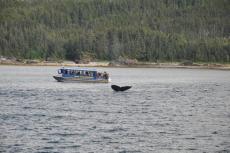We (humans, psychologists and divers) love to be able to put things into neat and tidy boxes. Even if we have a “freeform” mind and emotions, we still like to have something upon which we can ground ourselves—a base, if you like, that gives us just enough stability to cope with the stresses life throws at us.
Contributed by
Factfile
Matt Jevon, MSc, F.IoD, is a CCR and OC full cave and mixed gas technical dive instructor as well as a sports psychologist and human performance expert. Jevon works in high-performance sport (Olympic, world-class and professional sport), business (private equity and strategy) and diving at the highest level, including original exploration.
The base is made up of certainties—that is, the things we have been able to put into the boxes and are confident we have in place—which are managed or manageable, or are irrelevant to us. The more uncertainties we still have in life—which we perceive as relevant—the more stretched our resources in juggling the balls we have not yet found boxes for.
We then arm ourselves with resources, defences, experiences, skills and methods to cope with these vagaries and challenges of modern life. Even so, under stress and pressure, we can “default” to a fight-or-flight-type of reaction and behaviour. This usually happens when we perceive a mismatch between our resources and ability to cope with the challenges we face.
Of course, in a perfect world, each of these challenges would come in a series—i.e. one after the other—with time for us to gather our resources, work out a solution and sort it out. However, modern life is multimedia, multidirectional and multifaceted. Communication is instant, so issues hit us immediately and often impersonally. It can be hard to quantify problems. Then, in garnering resources for solutions, other people are often overwhelmed with messages, and struggle to answer or respond when we really need them.
Strategies
In some of my previous articles for this column, in which I talk about stress management, there is a more detailed description of these mechanisms and how to develop coping and stress management strategies. So, they are worth a reread or a look back.
The thing is to know when to use these strategies. We have to contextualise the full level of challenges and stressors that we face, and frankly, very few people do that. Life happens to 99 percent of people, not the other way around.
Deliberate choices
I watched a Youtube video recently about karma. The CliffsNotes version is that most people think karma is some sort of external “force” in which what goes around, comes around. In the video, it was suggested that karma is totally within us—whatever we do, say, feel or think—creating a “memory” within us, and it is this memory that will eventually be balanced out.
The video’s message was: Through your own thoughts, feelings, actions, etc., you can take control of your own karma, or—if you are not into the Eastern mysticism—your own life. To me, the message, regardless of the philosophy, is the same: Make choices deliberately; don’t just go along for the ride. So, easy to say, more difficult to do.
But think about your day today, from when you awoke. How much of today was your deliberate choice in what you did, in how you felt and in what you thought? How much was not in your control, not a conscious action and was part of routine, external demands (work/kids), or the unexpected/unplanned? Hmm… interesting, isn’t it?
We have developed an almost autopilot approach to life, reacting to the odd gust of wind, programming in the odd course of direction, but mostly bounded by routine. Life happens to us; we don’t take control of life. It is easier this way, especially if we can falsely justify to ourselves that the circumstances and factors that currently drive our directions are beyond our control (i.e. It is the government’s or my employer’s or the weather’s fault).
Proactive decisions
In diving, we have to take more proactive approaches, especially at the more “extreme” ends of the sport—deep wreck and cave diving, for example. We must make proactive decisions, taking control to prepare and ensure safety. However—call it habituation, complacency or normalisation of deviance—after a while, even at these extreme ends, the dive preparation becomes routine and the dive happens to us.
To borrow a quote from technical diving expert Mark Powell, “The majority of problems we face in the water, we carry into the water with us.” This may include equipment failures due to lack of maintenance and sufficiently in-depth pre-dive checks, lack of preparedness, lack of sleep, hydration and energy, and failure to check weather, currents and environmental conditions on the dive.
It is not technically difficult to “fix” this. It requires a deliberate and purposeful approach to not just all the things we do, but to life itself. Part of this lately has been described as mindfulness (Kabat-Zinn), but really, it is nothing new. Plato himself said our true purpose should be liberation of the mind, not freedom of the senses.
Some of us in the First World have also developed a bit of a sense of entitlement. We expect effort to be recognised and rewarded. We expect talent to be applauded and to rise up. Yet, this attitude creates barriers of its own. Expecting something by right prevents us from continuing our own efforts over the controllables until we have actually achieved. So, what are the good habits to maintain?
- 1. Become aware, whether you call it mindfulness, meditation, reflective practice or just a self or team debriefing. Learn to distinguish between what happened to you and what you made happen. Try and identify ways to increase the amount and quality of the things you made happen.
- 2. Start taking control of the small things first. Focus on your thoughts, behaviours and feelings. Something simple like making a drink for yourself and another person. Soon, you can begin the same process with bigger and more impactful things.
- 3. Act, don’t react. Realise when something is happening and it feels like you have no control over what is happening that, in fact, you do have control over how you behave, think and feel about it. Honestly, that is full control.
- 4. Be purposeful. Plan and prepare to do things, go places and engage with people where you can be purposeful. Begin if you like—to steal from Stephen Covey—with the end in mind.
- 5. Honestly assess how you fare with habits 1 to 4 above, and gradually push your control and influence wider.
So, what about my diving, you say? Well, work on gaining or regaining control in your life, from the mundane making of a coffee to the intensely emotionally-charged time spent with a loved one. You can apply these same approaches to your days diving. That way, when something unexpected or undesired occurs, you have control of your emotions and mindset, and will make great decisions and execute appropriate behaviours based on your degree of control.
Power is nothing without control. Make your life happen, don’t allow life to happen to you. ■


